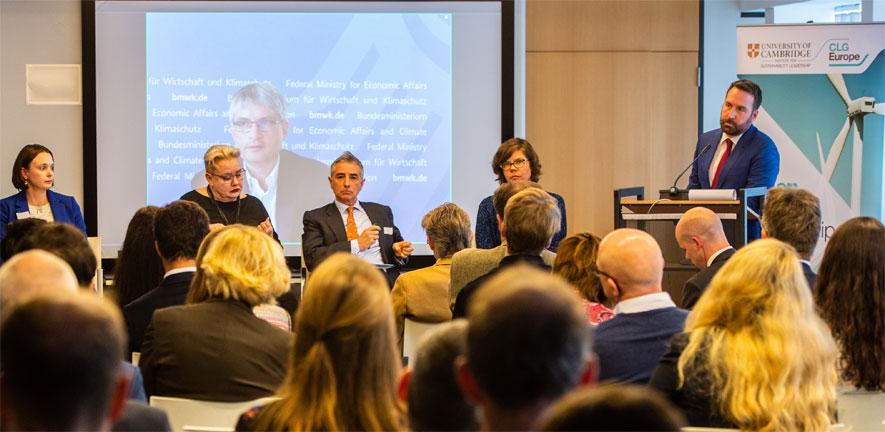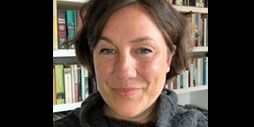
12 October 2022 - At the 2022 Green Growth Summit, EU decision makers, including Austrian Minister of Climate Action, Environment, Energy, Mobility, Innovation and Technology Leonore Gewessler, German State Secretary Sven Giegold and MEP Pascal Canfin insisted the EU is not slowing or reneguing on its climate objectives in response to the energy crisis.
In his keynote to the summit in Brussels, Pascal Canfin, Chair of the Environment Committee of the European Parliament said: “We haven’t changed our climate law, we haven’t changed our policies […] on the contrary, what I saw from the beginning of this crisis, from the energy angle, is that we are not going to backtrack and we are not backtracking.”
Both MEP Canfin and Finnish State Secretary Terhi Lehtonen identified the need to counter the narrative that the EU is going back on climate commitments and highlighted concrete examples of where the bloc is actively accelerating actions, such as in renewable energy - where MEPs have voted to raise the share of renewables in the energy mix to 45% and also the increase of the energy efficiency target to 14.5%
The EU and its member states have come under growing pressure to avoid backtracking on climate targets as the energy crisis caused by Russia’s invasion of Ukraine continues to impact European households and business. Recently the UN called on EU member states not to resort to fossil fuels in order to manage soaring fuel prices as winter approaches.
Coordinated by the European Corporate Leaders Group and ministers of the Green Growth Group, this year’s Green Growth Summit brought together ministers, secretaries of state, and business leaders from across EU member states discuss how energy and climate priorities can be addressed simultaneously while protecting the most vulnerable households and businesses.
Echoing Mr Canfin’s comments, German State Secretary Sven Giegold from the Federal Ministry for Economic Affairs and Climate Action said: “The climate targets go well with our objectives to get rid of dependence on Russian imports of raw materials and energy, and they also much more adapted to become climate neutral, more resilient and prosperous in the mid-term. The green growth agenda, the Green Deal agenda is exactly what we need right now.”
The Green Growth Summit took place on Monday (Oct 10) against the backdrop of a packed timeline of key European and international political discussions on how to address the ongoing energy crisis, including the European Summit in Czechia (October 6-7), Energy Council (October 11-12), and next month’s COP27 summit. In the context of Russia’s invasion of Ukraine and the EU’s measures to address soaring energy prices, while also negotiating its Fit for 55 package, the Summit sought to explore how to deal with the multiple climate and energy related crises Europe and the world are facing today.
Austrian Minister for Climate Action Leonore Gewessler delivered closing remarks of the summit by affirming the need to respond to the present energy crisis and Russian invasion of Ukraine by an accelerated transition away from fossil fuels.
Minister Gewessler said: “The current situation is without doubt one of the most crucial points we will experience when it comes to realising the energy transition and thus our climate goals. Putin’s actions in Ukraine have caused a variety of reactions in energy politics with some calling for more investment in fossil and gas infrastructure. […] It’s a no-brainer we have to become independent from fossil fuels as quickly as possible and the most urgent challenge is to reach independence from Russian gas. This is the only way to react to the attack on Ukraine.”
Also participating in the Green Growth Summit were Finnish Climate and Environment State Secretary Terhi Lehtonen, Deputy Ambassador Permanent Representative of Spain to the European Union Raúl Fuentes Milani, WWF European Office, Director Ester Asin, and others. The event also covered EU and businesses expectations for November’s COP27 in Sharm El Sheikh.
Addressing the issue of climate action, Terhi Lehtonen, Finnish State Secretary at the Ministry for the Environment and Climate Change spoke of her ‘fear’ the goal posts on 2030 targets could start to be moved to 2035.
Ms Lehtonen said: “Last year’s COP agreed on the Glasgow Climate Pact which includes several commitments to ensure necessary mitigation action. Unfortunately progress on implementation is less encouraging. We need all major economies to update their NDCs to be in line with the Paris Agreement and present robust implementation plans. My fear is that after this year’s COP that goal posts at the global level and at the UNFCCC agenda move from 2030 to looking at 2035 timeframe and we cannot afford to lose any momentum to the contrary we need to accelerate.”
Elina Bardram, Director, Adaptation and Resilience, DG CLIMA stressed the need to focus on implementation, showing that governments are walking the talk, but also that the crisis we are in is shared and will require working together. She called out the important role for businesses to be enablers of the implementation of the Paris Agreement. Without business confidence in the direction of travel, the EU wouldn’t be making such progress.
The need for policy and business to support each other to create an ambition loop was highlighted by Ball Corporation and Velux in the first panel where both speakers stressed the need for strong policy measures to give direction to businesses and confidence to investors, while Anthony Abbotts from Rockwool stated that businesses are ready to move faster and further, but need policy consistency and clarity.
During discussions, Lila Karbassi, Senior Officer, UN Global Compact, Chair of the Executive Board of the Science Based Targets Initiative outlined three areas she felt would be signals of success including the need for deep collaboration to build trust between nations and groups of nations, the good will needed to develop the plan for the loss and damage proposal, and not letting go of 1.5C. She also identified the EU’s conversations with African nations over supplying fossil fuels as not helpful for the climate debate or the COP.
She said: “There is a trust deficit. There needs to be a desire to bridge the gap between the North and the South, and the East and the West. Any sign of multilateral cooperation is a success because we’re lacking that. The loss and damage package will be big and will be discussed at the start of COP. There needs to be goodwill on both sides to figure out the framework to settle that. And a huge element of success is that we don’t give up on 1.5. We need to keep the ambition level high, […] it requires efforts […] but let’s not give up on ambition levels - that is a slippery slope, and even if we have to make decisions that increase emissions, we have to keep the goal of halving emissions by 2030 in the medium term.
“The fact that Europe is going to Africa to supply gas is not particularly helpful for the climate debate and for the COP. The $100bn, we know that we’re somewhere nearer £80-90bn potentially – between this COP and the next that has to be on the table. […] That show of goodwill that was started in 2009 in Copenhagen. We have to move beyond that, there were trillions mobilised for the COVID crisis and billions mobilised now for securing energy, so we have to put that on the table and beyond, so we can make progress on the topic.”
In wrapping up the day’s discussions, CLG Europe and the Green Growth Partnership Director Eliot Whittington said: “What we have heard today is a really powerful consensus about the direction of travel, […] There are real challenges but there are real dynamics and institutions that can allow us to move forward. And there is an imperative to move forward and we have to acknowledge that as we move from today into conversations about the EU Environment Council and EU Energy Council, and into COP27. If we can take the energy and dynamism and the examples of success from this room and use that as the basis to move forward, that will be excellent.”
At the event, the European Corporate Leaders Group (CLG Europe) released its new report suggesting policies that reflect the political and cultural frame of their making can deliver change more effectively. The paper highlights the need to design thought-through, integrated, contextualised climate policies in order to deliver the scale and speed of change to keep global average temperature rise to 1.5C.
Context is everything: Insights and lessons for successfully delivering the European Green Deal also makes the case that an enabling environment can enhance policies’ ability to deliver sustainable societies and that ambitious frameworks to deliver the first net zero continent, as promised by Commission President Ursula von der Leyen, need to go hand in hand with conditions that encourage households and businesses to make greener choices.
The report states: ‘This is a crucial moment for the EU to develop and implement the policies and plans needed to address the multiple crises we face. These include the climate and cost of living crises, biodiversity protection, energy security, and the need to develop a more inclusive, competitive and growing economy. […] Policies that seek to mitigate greenhouse gas emissions and limit the environmental impact of human activity do not exist in isolation. Instead, their ability to instigate change is influenced by the contextual conditions within which they are introduced, as well as their detailed design. Their effectiveness is also impacted by how well the different policies support each other in creating synergies that generate a degree of change that is greater than could be achieved in isolation.’





